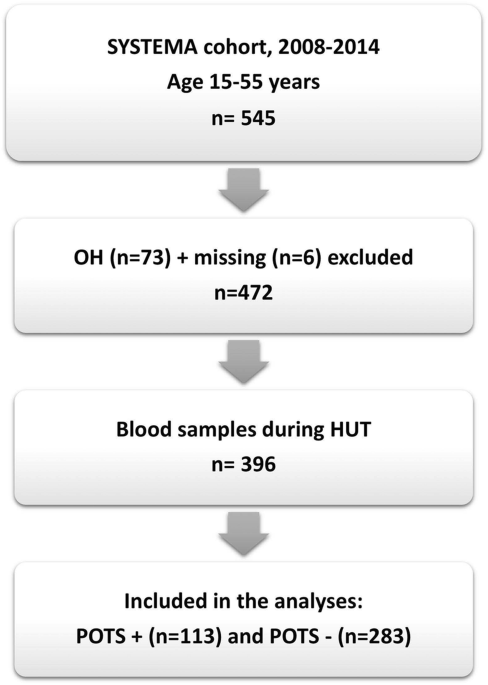
Proteomic analysis reveals sex-specific biomarker signature in postural orthostatic tachycardia syndrome, BMC Cardiovascular Disorders
4.9 (269) In stock

4.9 (269) In stock
Background Postural orthostatic tachycardia syndrome (POTS) is a variant of cardiovascular (CV) autonomic disorder of unknown etiology characterized by an excessive heart rate increase on standing and orthostatic intolerance. In this study we sought to identify novel CV biomarkers potentially implicated in POTS pathophysiology. Methods We conducted a nested case-control study within the Syncope Study of Unselected Population in Malmö (SYSTEMA) cohort including 396 patients (age range, 15–50 years) with either POTS (n = 113) or normal hemodynamic response during passive head-up-tilt test (n = 283). We used a targeted approach to explore changes in cardiovascular proteomics associated with POTS through a sequential two-stage process including supervised principal component analysis and univariate ANOVA with Bonferroni correction. Results POTS patients were younger (26 vs. 31 years; p < 0.001) and had lower BMI than controls. The discovery algorithm identified growth hormone (GH) and myoglobin (MB) as the most specific biomarker fingerprint for POTS. Plasma level of GH was higher (9.37 vs 8.37 of normalised protein expression units (NPX); p = 0.002), whereas MB was lower (4.86 vs 5.14 NPX; p = 0.002) in POTS compared with controls. In multivariate regression analysis, adjusted for age and BMI, and stratified by sex, lower MB level in men and higher GH level in women remained independently associated with POTS. Conclusions Cardiovascular proteomics analysis revealed sex-specific biomarker signature in POTS featured by higher plasma level of GH in women and lower plasma level of MB in men. These findings point to sex-specific immune-neuroendocrine dysregulation and deconditioning as potentially key pathophysiological traits underlying POTS.
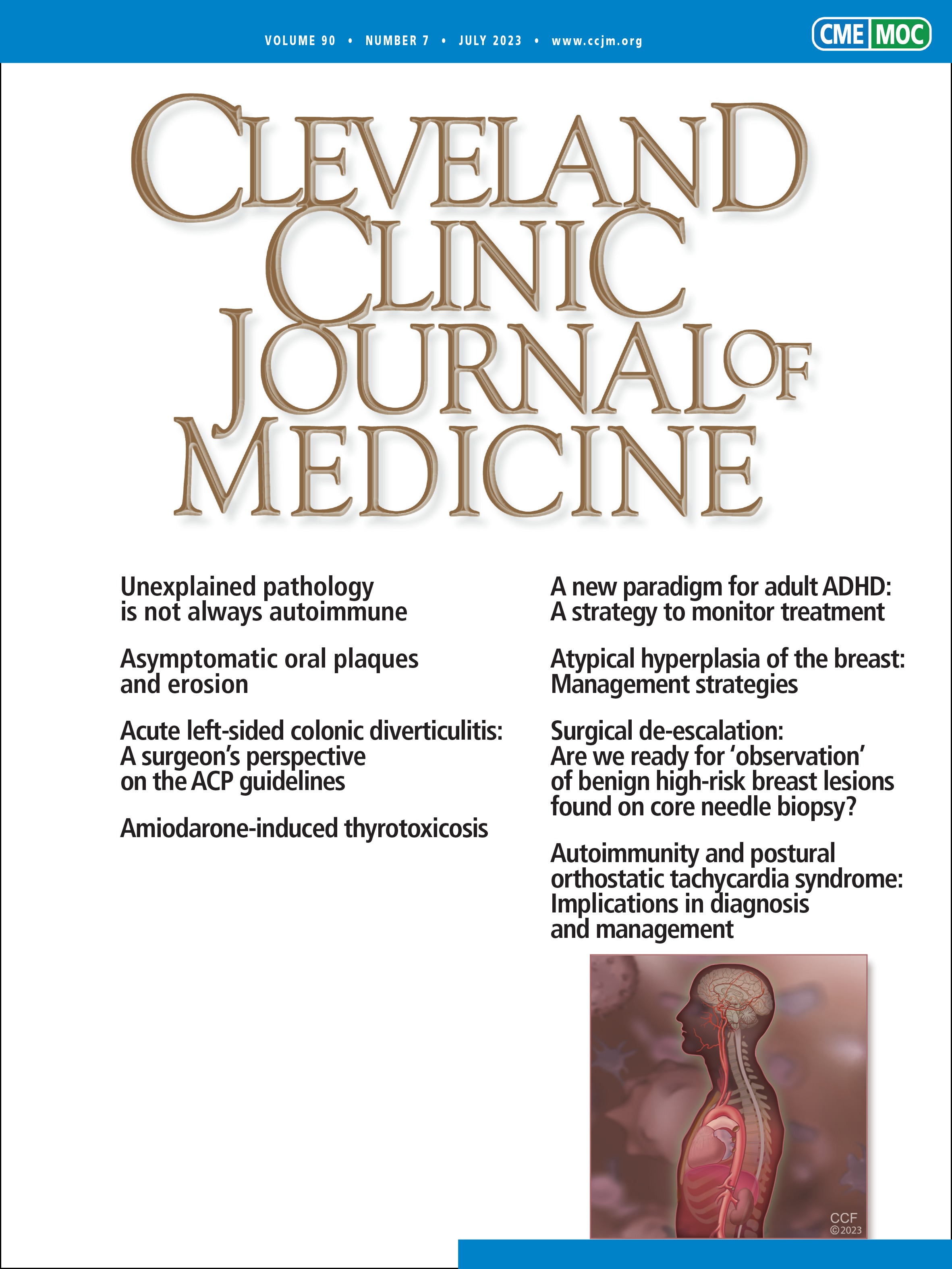
Autoimmunity and postural orthostatic tachycardia syndrome: Implications in diagnosis and management
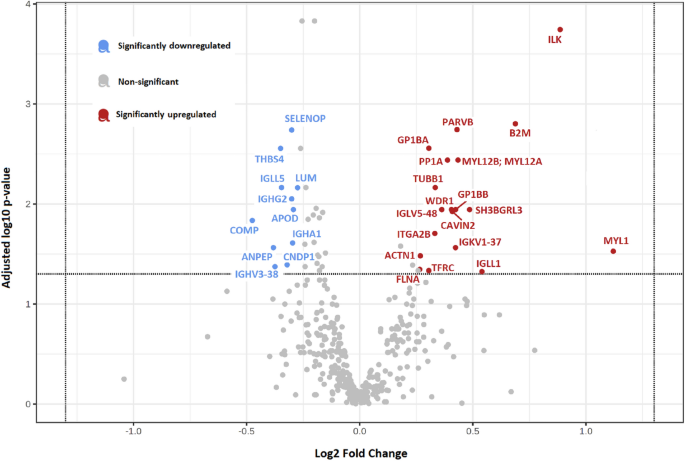
Plasma proteomic profiling in postural orthostatic tachycardia syndrome ( POTS) reveals new disease pathways

Proteomic analysis of cardiometabolic biomarkers and predictive modeling of severe outcomes in patients hospitalized with COVID-19, Cardiovascular Diabetology

Proteomic analysis of cardiometabolic biomarkers and predictive modeling of severe outcomes in patients hospitalized with COVID-19, Cardiovascular Diabetology

1-L Transcription in Parkinson's Disease

1-L Transcription in Parkinson's Disease

Small molecule metabolites: discovery of biomarkers and therapeutic targets. - Abstract - Europe PMC
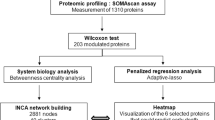
Plasma proteomic profiling in postural orthostatic tachycardia syndrome ( POTS) reveals new disease pathways
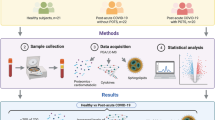
Plasma proteomic profiling in postural orthostatic tachycardia syndrome ( POTS) reveals new disease pathways

Postural orthostatic tachycardia syndrome (POTS): State of the science and clinical care from a 2019 National Institutes of Health Expert Consensus Meeting - Part 1 - Autonomic Neuroscience: Basic and Clinical

Apparent risks of postural orthostatic tachycardia syndrome diagnoses after COVID-19 vaccination and SARS-Cov-2 Infection
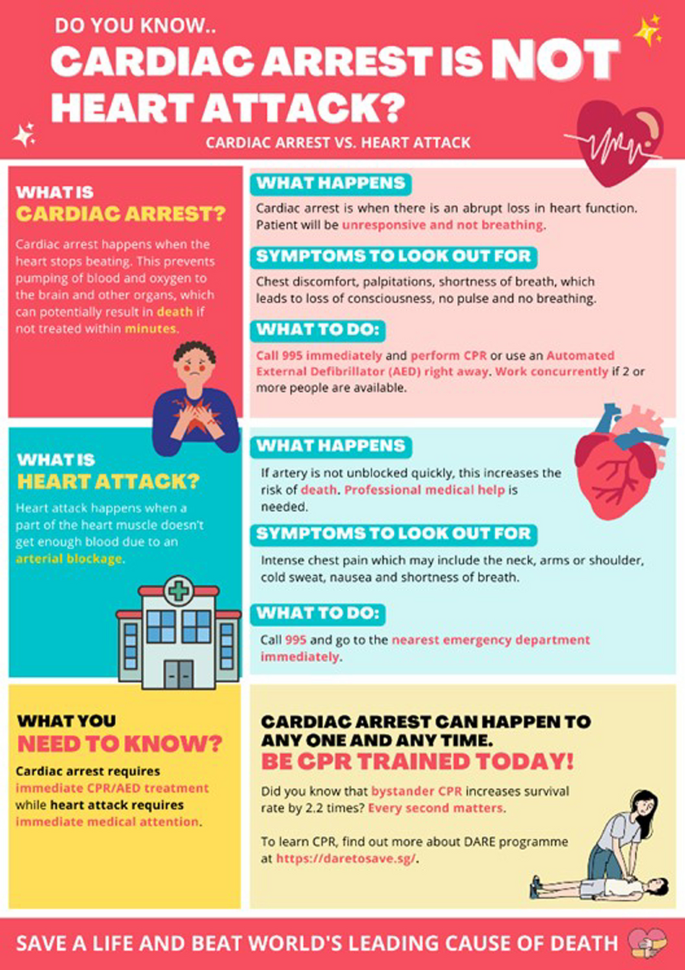
43rd International Symposium on Intensive Care & Emergency Medicine, Critical Care

Proteomic Signatures of Lifestyle Risk Factors for Cardiovascular Disease: A Cross‐Sectional Analysis of the Plasma Proteome in the Framingham Heart Study